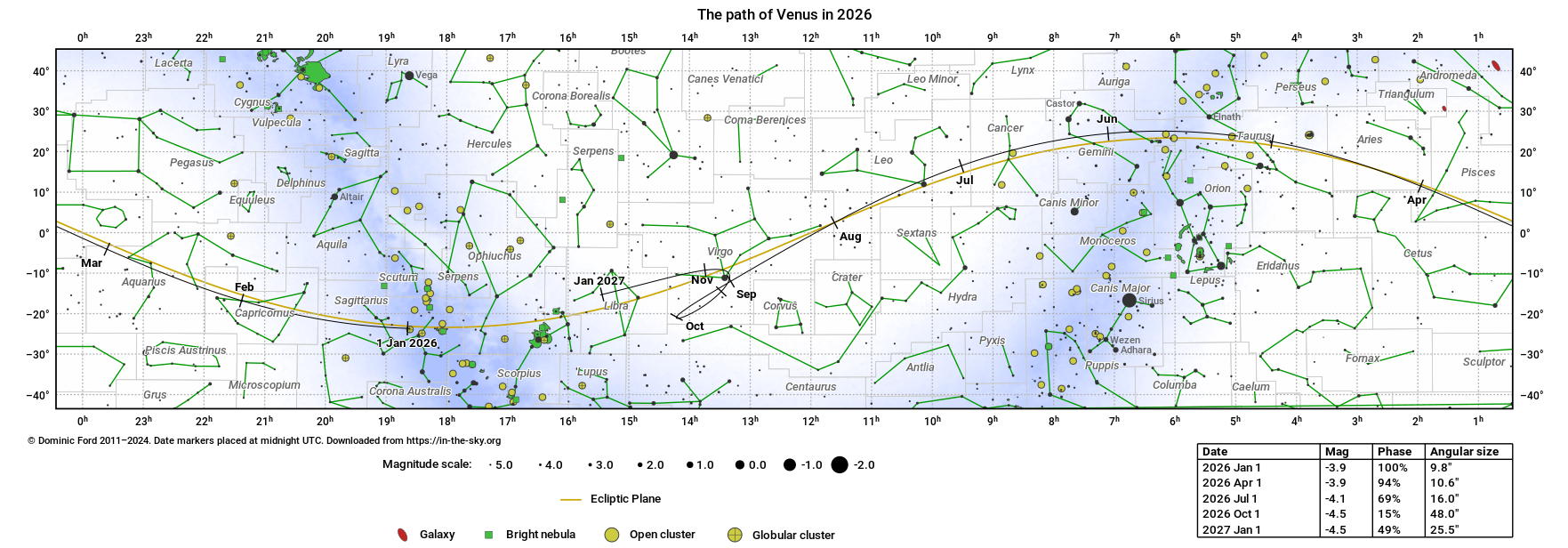Venus (Planet)

© NASA/Ricardo Nunes
Finder chart

Please wait
Loading 0/4
Click and drag to rotate
Mouse wheel to zoom in/out
Touch with mouse to dismiss
Click and drag the chart above to pan around the sky, or use the mouse wheel to zoom.
Click to enlarge.
From South El Monte
,
Venus is not readily observable since it is very close to the Sun, at a separation of only 0° from it.
|
Name
Venus
|
Object type
Inferior planet
|
Current position| Computed for: | 06 January 2026 |
| Right ascension: | 19h07m [2] |
| Declination: | −23°13' [2] |
| Constellation: | Sagittarius |
| Magnitude: | -3.92 (V) [1]
|
| Angular diameter: | 9.8 arcsec[2] |
| Distance: | 1.71 AU
14.23 lightmin [2] |
Orbital elements [2]| Semi-major axis: | 0.72 AU |
| Eccentricity: | 0.006777 |
| Inclination: | 3.39° |
| Longitude ascending node: | 76.68° |
| Argument of perihelion: | 54.92° |
| Epoch of elements: | 1 Jan 2000 |
| Mean Anomaly at epoch: | 50.38° |
| Absolute mag (H): | -4.34 [1] |
| Slope parameter (n): | 2.00 [1] |
Derived quantities| Perihelion: | 0.72 AU |
| Aphelion: | 0.73 AU |
| Orbital period: | 0.62 years |
Sources| [1] | Robin M. Green, Spherical Astronomy, 1985, ISBN 0-521-31779-7 |
| [2] | Explanatory Supplement to the Astronomical Almanac, 2013, Urban & Seidelmann, Eds., Table 8.7, ISBN 978-1-891389-85-6 |
Visibility from South El Monte
All times shown in South El Monte local time.
Printable finder charts
Share



